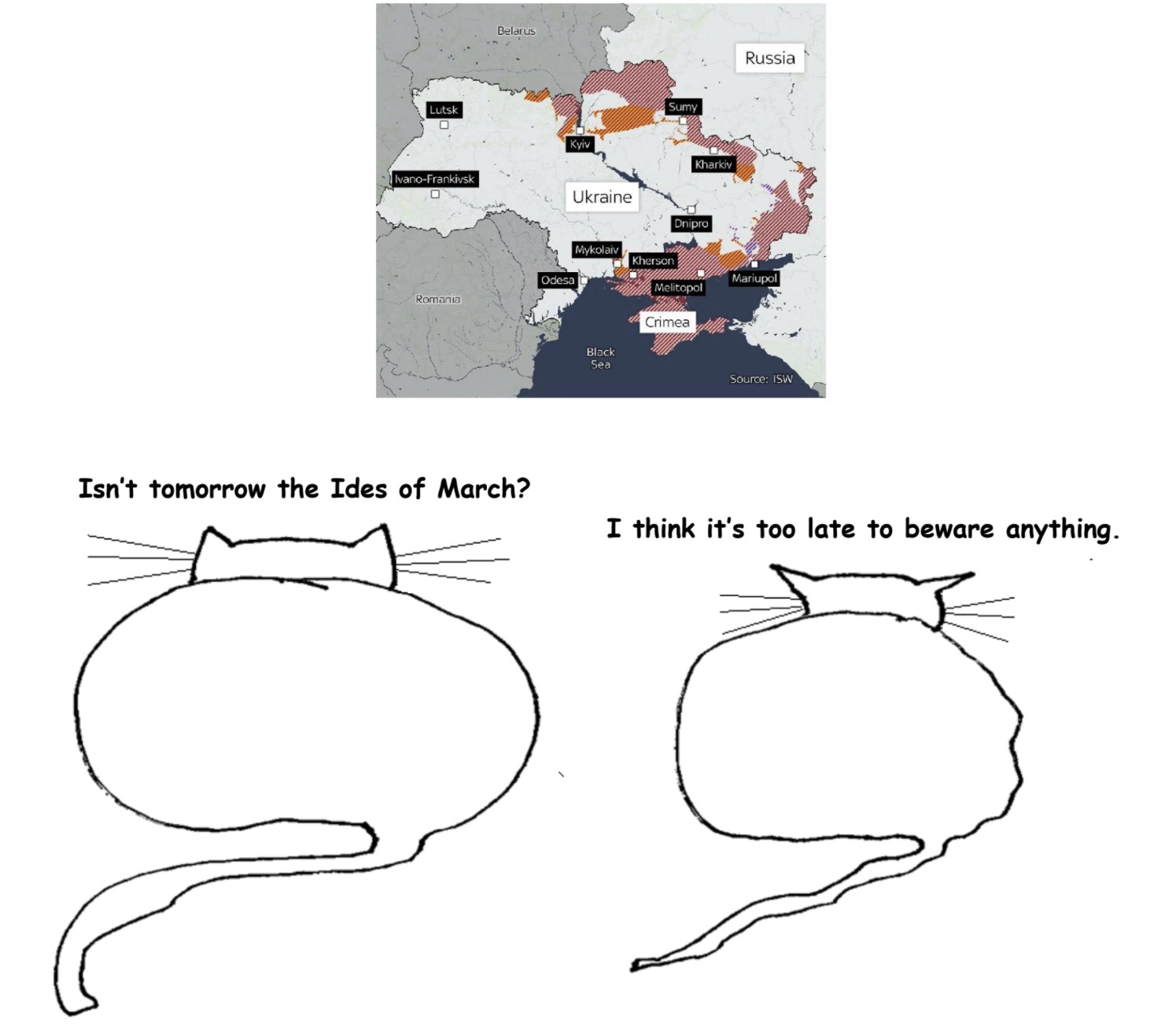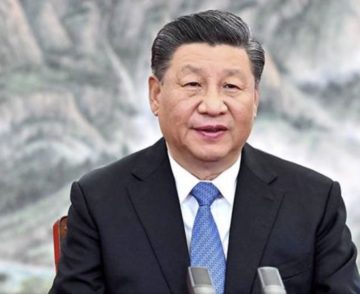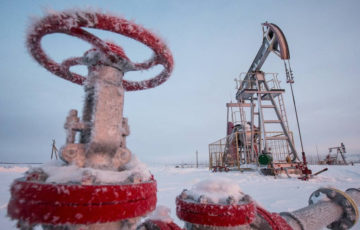by Brooks Riley

by Brooks Riley

by Mindy Clegg

Back in 2018, police raids shut down some New Orleans strip clubs in the famed French Quarter for alleged drug and sex trafficking. In the aftermath, several venues closed for good even though there were no arrests for sex trafficking. In an op-ed, dancer and activist Reese Piper argued that rather than being trafficking victims, most dancers were there by choice and sought greater legal protections for their profession. Rather than making arrests for trafficking, the NOLA police made arrests for prostitution, which they conflated with trafficking. But many sex work activists opposed this characterization of both prostitution and stripping. In her article at The Appeal from 2018, Melissa Gira Grant described how the city proposed changes, such as capping the number of clubs allowed in the French Quarter. Such measures failed because of a protest led by the dancers from the raided clubs. Many connected these raids to the gentrification sweeping the city since hurricane Katrina in 2005, recently described by Joseph Chanoff. As in many other American cities, working class residents, especially people of color, are being priced out of their communities in the wake of Katrina. Many fear that the nature of the city will change, making it a simulacra of itself, an image of New Orleanian culture rather than the thing itself. But what does it mean to change a culture by “sanitizing” it? What about pricing out one community in favor of another? Does revitalization always mean driving out the things that make a local culture unique for a tourist-focused commodified version? What sort of world-view does gentrification create? Making cities safer and more livable should be a priority, but not at the expense of some people in favor of others as Chanoff argued. Read more »
by David J. Lobina

A testy title for an article about James Joyce in this centenary year of the publication of Ulysses, but all the more pertinent for that, especially in the context of this series on Language and Thought (and I don’t really mean that he was wrong, actually). After all, last month I brought up the role of “talking to ourselves” in reasoning and decision-making – to think – and the narrative technique of interior monologue, amply used in Ulysses, is precisely meant to depict the phenomenon I was dealing with – inner speech, in the parlance of philosophers and psychologists. Not to be confused with the stream-of-consciousness technique, though they are related, the interior-monologue technique is a linguistic rendering of a character’s thoughts, whereas a stream of consciousness may include the character’s perceptions and impressions (visual, aural, what have you) in addition to their inner speech, and it typically comes from the pen of a narrator rather than directly from the mind of a character as is the case in inner speech.[i]
As a case in point:
—Is it your view, then, that she was not faithful to the poet?
Alarmed face asks me. Why did he come? Courtesy or an inward light?
—Where there is a reconciliation, Stephen said, there must have been first a sundering.
At first sight the presence of interior monologue in this exchange (signposted by my italics, here and henceforth), as imagined by Joyce in the Ulysses, seems a plausible rendering of the thoughts Stephen Dedalus was having at the time. Is it psychologically plausible, though? I don’t mean whether Stephen was really having such thoughts – he did, Joyce wrote so. What I mean is whether Stephen was actually verbalising these thoughts to himself in inner speech as he was having them. Read more »
A trans creation after Iqbal, by Rafiq Kathwari
God
Aha! Comrade Ulyanov—
Welcome! Or I should say,
Dobro Pozhalovat!
Lenin
You’re alive? But “God is dead,” they said.
God
I inhabit men’s heart: passion’s home,
and for a moment
my angels swayed to your tune.
Lenin
So, this is the source of the babble in churches.
God
Command and Control.
Shock and Awe.
@NoGodButGod
Lenin
I need a drink…
God
Heaven is not your local pub,
but we’ve a house white on tap:
Water of Life. Glass or Goblet?
Lenin
Shot glass. Neat.
God
Think of it as Korsvodka.
Red blush on your cheeks—
it’s not rouge. Is it?
Lenin
‘Tis, but O All Knowing, when will the boat of capitalism sink? Read more »
by Pranab Bardhan
All of the articles in this series can be found here.
 In both ISI and DSE there was one problem I faced in my research that was something I did not fully anticipate before. Some of the major international journals had a submission fee for research papers which was equivalent to something that would exhaust most of my Indian monthly salary. In the US authors mostly charged the fee to their research grants, which was not a way out for me. I once wrote about this to the Executive Committee of the American Economic Association (AEA), and suggested that for their journals they should have a lower rate for authors from low-income countries. I got a reply, saying that after careful consideration in their Committee meeting they had decided against my suggestion. Their rationale was a typical one for believers in perfect markets: since an article in an AEA journal was likely to raise significantly the expected lifetime earnings of an author, the latter should be able to finance it. (I visualized the dour face of an Indian public bank loan officer trying to comprehend this).
In both ISI and DSE there was one problem I faced in my research that was something I did not fully anticipate before. Some of the major international journals had a submission fee for research papers which was equivalent to something that would exhaust most of my Indian monthly salary. In the US authors mostly charged the fee to their research grants, which was not a way out for me. I once wrote about this to the Executive Committee of the American Economic Association (AEA), and suggested that for their journals they should have a lower rate for authors from low-income countries. I got a reply, saying that after careful consideration in their Committee meeting they had decided against my suggestion. Their rationale was a typical one for believers in perfect markets: since an article in an AEA journal was likely to raise significantly the expected lifetime earnings of an author, the latter should be able to finance it. (I visualized the dour face of an Indian public bank loan officer trying to comprehend this).
I also found out that using Indian micro-level data for a research paper in a mainstream American journal in those days was considered so exotic that more often than not the editors, even before reviewing the paper, would immediately suggest sending it instead to an Indian journal or at best a field journal. Read more »
Justin E. H. Smith in his Substack newsletter, The Hinternet:
 Today’s ‘stack will principally involve “housekeeping”. I said explicitly a week ago that the war in Ukraine has left me literally speechless, and I meant it. I was able to squeeze out some speech a week ago nonetheless, mostly by soldering together various fragments already written, by descending into mean-spiritedness in a vain effort to be funny, by “just saying whatever”. I can’t rely on the strategy of gonzo bricolage week to week, and so today I can only confess the stubborn silence of my “inner voice”, the homunculus who lives inside me and, when things are going right, dictates what I have to say.
Today’s ‘stack will principally involve “housekeeping”. I said explicitly a week ago that the war in Ukraine has left me literally speechless, and I meant it. I was able to squeeze out some speech a week ago nonetheless, mostly by soldering together various fragments already written, by descending into mean-spiritedness in a vain effort to be funny, by “just saying whatever”. I can’t rely on the strategy of gonzo bricolage week to week, and so today I can only confess the stubborn silence of my “inner voice”, the homunculus who lives inside me and, when things are going right, dictates what I have to say.
This silence may come as a surprise, as I generally both teach and practice insouciance in the face of global crisis — I believe there is a moral imperative to do so: maintaining good spirits both for the sake of one’s own survival and the survival of good spirits themselves, so that the world, when any given crisis has passed, should still know what good spirits are. Although maintained with a solemn air of duty, this insouciance is sometimes received by others as a sign of my simply not caring, and if you receive it in that way you will likely wish to criticize me, now, for finally caring when it comes to the citizens of Kyiv or Mariupol, but not of, say, Syria, Iraq, or Yemen.
More here.
Darwin A Guevarra and Kari A Leibowitz in Psyche:
 In a foundational study in 2010, researchers at Harvard Medical School randomised patients experiencing irritable bowel syndrome (IBS) symptoms into either an open-label placebo group or a no-treatment control group – and crucially, all the patients knew which group they were in. The researchers told patients in the open-label placebo group that the placebo effect is powerful, that the body can respond automatically to taking placebo pills (similar to the classic conditioning example of Pavlov’s dogs, who salivated at the sound of the dinner bell), that a positive attitude helps but is not required, and that it is vital to take the pills faithfully for the entire 21-day study period, regardless of their belief in the pills. By the end of the study, even though the placebo pills contained no active ingredients, and despite the patients knowing they’d been taking placebos, they reported fewer IBS symptoms and more improvement in overall quality of life than patients in the no-treatment control group.
In a foundational study in 2010, researchers at Harvard Medical School randomised patients experiencing irritable bowel syndrome (IBS) symptoms into either an open-label placebo group or a no-treatment control group – and crucially, all the patients knew which group they were in. The researchers told patients in the open-label placebo group that the placebo effect is powerful, that the body can respond automatically to taking placebo pills (similar to the classic conditioning example of Pavlov’s dogs, who salivated at the sound of the dinner bell), that a positive attitude helps but is not required, and that it is vital to take the pills faithfully for the entire 21-day study period, regardless of their belief in the pills. By the end of the study, even though the placebo pills contained no active ingredients, and despite the patients knowing they’d been taking placebos, they reported fewer IBS symptoms and more improvement in overall quality of life than patients in the no-treatment control group.
More here.
Julia Friedman and David Hawkes in Quillette:
 We are approaching the first anniversary of a landmark event in the art world. Although it seemed shockingly new last year, it represents the culmination of a trajectory described by Wolfe half a century ago: the de-materialization of art. On March 11th, 2021, a momentous auction was held by Christie’s. It was a dramatic departure from precedent, partly because its realized price was a record-breaking $69,346,250, but mostly because the lot that commanded this fortune was not a painting by Vincent Van Gogh, or even a sculpture by Jeff Koons, but a purely digital artwork by an artist with no prior auction record. Everydays: The First 5000 Days exemplified a brand-new aesthetic genre: it was a Non-Fungible Token (NFT), created by Mike Winkelmann, who works under the pseudonym “Beeple.” Neither of these names meant a thing to the fine art world a year ago. They do now.
We are approaching the first anniversary of a landmark event in the art world. Although it seemed shockingly new last year, it represents the culmination of a trajectory described by Wolfe half a century ago: the de-materialization of art. On March 11th, 2021, a momentous auction was held by Christie’s. It was a dramatic departure from precedent, partly because its realized price was a record-breaking $69,346,250, but mostly because the lot that commanded this fortune was not a painting by Vincent Van Gogh, or even a sculpture by Jeff Koons, but a purely digital artwork by an artist with no prior auction record. Everydays: The First 5000 Days exemplified a brand-new aesthetic genre: it was a Non-Fungible Token (NFT), created by Mike Winkelmann, who works under the pseudonym “Beeple.” Neither of these names meant a thing to the fine art world a year ago. They do now.
More here.
Stephen S. Roach in Project Syndicate:
 China can take the initiative in three key areas. For starters, Chinese President Xi Jinping should call for an emergency summit of G20 leaders, focused on achieving an immediate and unconditional ceasefire in this conflict and developing an agenda for a negotiated peace. The G20 is now the recognized forum for global action in the midst of crisis, having galvanized support among the world’s leading economies in late 2008 for a coordinated response to the global financial crisis. Both China and Russia are members, so the G20 can play a similar role today. As a demonstration of his personal commitment to this effort, Xi should break his post-pandemic lockdown protocol (he has not left China in 24 months) and attend the meeting in person – as should Russian President Vladimir Putin.
China can take the initiative in three key areas. For starters, Chinese President Xi Jinping should call for an emergency summit of G20 leaders, focused on achieving an immediate and unconditional ceasefire in this conflict and developing an agenda for a negotiated peace. The G20 is now the recognized forum for global action in the midst of crisis, having galvanized support among the world’s leading economies in late 2008 for a coordinated response to the global financial crisis. Both China and Russia are members, so the G20 can play a similar role today. As a demonstration of his personal commitment to this effort, Xi should break his post-pandemic lockdown protocol (he has not left China in 24 months) and attend the meeting in person – as should Russian President Vladimir Putin.
Second, China can contribute substantially to humanitarian assistance.
More here.
From Phys.Org:
 Physicists have discovered a new way to coat soft robots in materials that allow them to move and function in a more purposeful way. The research, led by the UK’s University of Bath, is described today in Science Advances. Authors of the study believe their breakthrough modeling on ‘active matter’ could mark a turning point in the design of robots. With further development of the concept, it may be possible to determine the shape, movement and behavior of a soft solid not by its natural elasticity but by human-controlled activity on its surface.
Physicists have discovered a new way to coat soft robots in materials that allow them to move and function in a more purposeful way. The research, led by the UK’s University of Bath, is described today in Science Advances. Authors of the study believe their breakthrough modeling on ‘active matter’ could mark a turning point in the design of robots. With further development of the concept, it may be possible to determine the shape, movement and behavior of a soft solid not by its natural elasticity but by human-controlled activity on its surface.
The surface of an ordinary soft material always shrinks into a sphere. Think of the way water beads into droplets: the beading occurs because the surface of liquids and other soft material naturally contracts into the smallest surface area possible—i.e. a sphere. But active matter can be designed to work against this tendency. An example of this in action would be a rubber ball that’s wrapped in a layer of nano-robots, where the robots are programmed to work in unison to distort the ball into a new, pre-determined shape (say, a star).
It is hoped that active matter will lead to a new generation of machines whose function will come from the bottom up.
More here.
Dave Lindorff in Counterpunch:
 Nobody is talking about the blame that must be shouldered by the German government for the crisis and humanitarian disaster in Ukraine.
Nobody is talking about the blame that must be shouldered by the German government for the crisis and humanitarian disaster in Ukraine.
Sure Russia is guilty of a huge war crime in invading Ukraine. Surely too, the US must be blamed for creating the situation which led Russia and its autocratic leader Vladimir Putin to decide it had to invade to prevent Ukraine from being pulled into the US orbit with the goal that it would ultimately become a base for US offensive weapons — even nuclear weapons — on Russia’s border — something the US would never allow to happen anywhere in its self-proclaimed “backyard” of Latin America and the Caribbean.
But Germany, the largest country in NATO after the US, is almost as guilty for this current war in Europe as is the United States. Germany was only reunified without any difficulty after 45 years of being split in two following World War II, because of a deal struck by the US with Russia in 1990 at which US Secretary of State James Baker stated that NATO would not be expanded “one inch ” eastward past the reunified German border. Now it is widely known that despite having a powerful economy, Germany remains something of a lackey of the US in its foreign policy.
More here.
The second farthest place that I have been
from anything that you will ever know is
in love. Like this, I mean. Like how when
condors fledge, they leap from icy cliffs then
fly. They ask: Destination? Purpose? I say, Yes,
I wish to have one. Let’s say “South.” Ushuaia,
the land of lagooned mountains, turquoise in
the snow. Let’s say I have a backup answer, but
we will never hear it because I’ll go and I’ll be
gone, like how you went, too—became a time
lapse of the clouds over El Chaltén: just some slow
recording on my phone. That was supposed to be
the time of my life. That was supposed to be when
we got closer. What even is the word explore? Flamingoes
in their craning lines, pink perforations in the sky and salt. Ñandu.
Receding glaciers. Perhaps we should just accept climate change
as a liberation of the water. We’re its savior, returning it to
its rightful salten home. And who was Magellan,
anyway? There are penguins with his name, but
only in colonial tongues, and I call them that. And
you sent me here to learn what a disaster the world is—
has always been because of men like me. See it
all, you said; and I signed on without considering
the finest print: sure to witness disaster. We’ll be
fighting over love and water in our lifetimes.
We’ll squander them like years, but
faster. And even when we have
none left, we’ll still believe
we have the answers.
by Benjamin Faro
from the Ecotheo Review
Marc Lange in Aeon:
In the original Star Trek, with the Starship Enterprise hurtling rapidly downward into the outer atmosphere of a star, Captain James T Kirk orders Lt Commander Montgomery Scott to restart the engines immediately and get the ship to safety. Scotty replies that he can’t do it. It’s not that he refuses to obey the Captain’s order or that he doesn’t happen to know how to restart the engines so quickly. It’s that he knows that doing so is impossible. ‘I can’t change the laws of physics,’ he explains.
We all understand Scotty’s point (although the Enterprise does somehow manage to escape). He cannot break the laws of nature. Nothing can. The natural laws limit what can happen. They are stronger than the laws of any country because it is impossible to violate them. If it is a law of nature that, for example, no object can be accelerated from rest to beyond the speed of light, then it is not merely that such accelerations never occur. They cannot occur.
There are many things that never actually happen but could have happened in that their occurrence would violate no law of nature. For instance, to borrow an example from the philosopher Hans Reichenbach (1891-1953), perhaps in the entire history of the Universe there never was nor ever will be a gold cube larger than one mile on each side. Such a large gold cube is not impossible. It just turns out never to exist.
More here.
 Esfandyar Batmanghelidj in War on the Rocks:
Esfandyar Batmanghelidj in War on the Rocks:
In his 1919 work Economic Consequences of the Peace, John Maynard Keynes warns that “the menace of inflationism … is not merely a product of war, of which peace begins the cure. It is a continuing phenomenon of which the end is not yet in sight.” Keynes was commenting on the negotiations that would lead to the Versailles Treaty. Against a backdrop of hunger and despair, the victors of World War I condemned Germany to further sanctions. The treaty’s proponents believed that to prevent a future war, the German economy, a “vast fabric built upon iron, coal, and transport,” needed to be “destroyed.” But Keynes understood that with Germany in a state of perpetual crisis, the European economy would never recover. Tearing up Germany’s fabric would keep Europe on the path to another great war.
Western governments have responded to President Vladimir Putin’s brutal invasion of Ukraine with an unprecedented sanctions program. President Joe Biden has vowed to sap Russia’s “economic strength and weaken its military for years to come.” Erik Sand and Suzanne Freeman echo Keynes’ warning in this publication, arguing that “there is likely no way to effectively pressure Russia without some increase in the risk of escalation.” Putin may respond to increased economic pressure militarily, but so far he is weighing economic countermeasures. Reports that Russia will ban the export of key commodities for the remainder of the year have rocked global markets given the likely inflationary shock.
More here.
 Ron Ivey in American Affairs Journal:
Ron Ivey in American Affairs Journal:
SG—environmental, social, and governance—investing has become one of the fastest growing areas of finance in recent years and increasingly influences capital allocation decisions for investors and firms. But what exactly is ESG, and does its actual impact on a broad group of economic “stakeholders” match its advertising? As ESG funds have grown their assets under management in recent years, ESG investment criteria have, if anything, only become more contested.
Indeed, Bloomberg Businessweek recently revealed that the largest for‑profit accreditation company of corporate environmental and social responsibility, MSCI, does not actually measure a corporation’s impact on society or the environment, but rather assesses how companies are reducing regulatory and brand risks for their shareholders.1 New York University finance professor Aswath Damodaran recently lamented that the ESG ecosystem is merely a “gravy train” for consultants, ESG fund managers, and investment marketers, leading to little social benefit for stakeholders outside of the self-serving circle of the ESG industry.2 Former Facebook executive, SPAC promoter, and Social Capital founder Chamath Palihapitiya has made an even bolder statement that ESG funds and evaluation agencies like MSCI are fraudulent products.3 He argues that these groups use the veneer of social and environmental responsibility to reduce regulatory oversight for multinational behemoths while allowing them to apply for negative interest rate loans from central banks. From Palihapitiya’s perspective as a venture investor, these “green washed” and “social washed” funds attract investment away from actual businesses that are addressing social and ecological challenges more fundamentally in their business models.
More here.